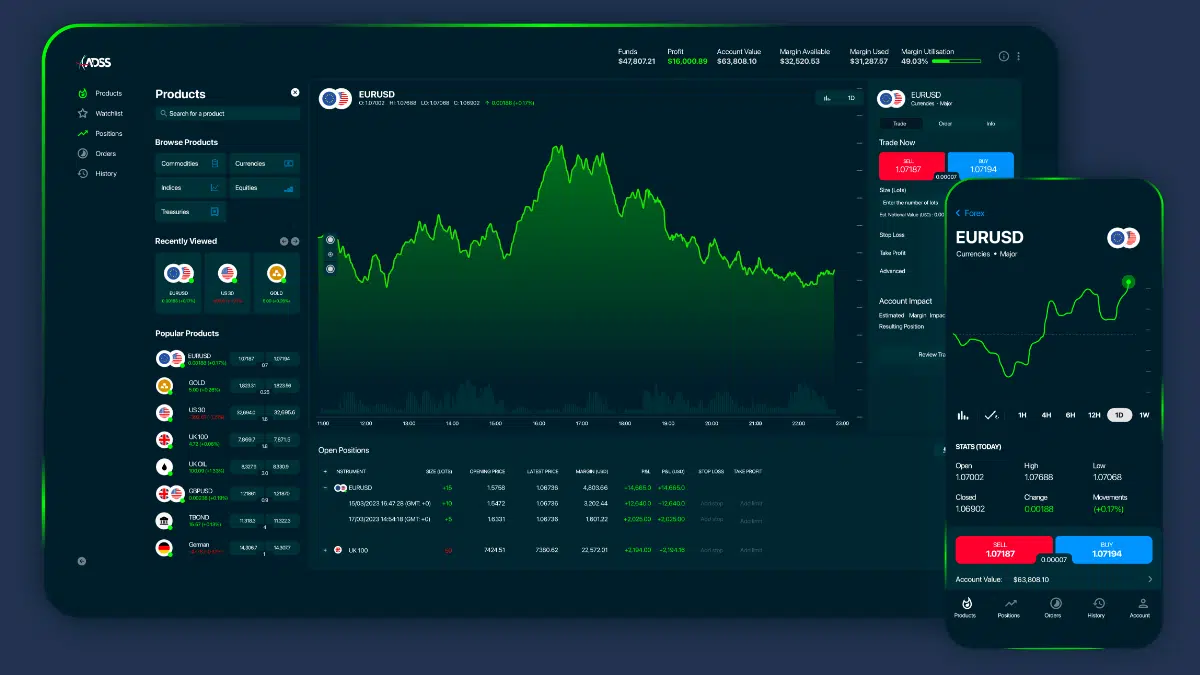The question echoes in the minds of homeowners and aspiring buyers alike: “Is now the right time to make a move in the real estate market?” It’s a question without a simple, universal answer. Real estate is inherently hyper-local, with market conditions influenced by a complex interplay of factors that can vary dramatically from one neighbourhood to the next, and even street by street.
This blog post aims to provide you with a clear framework for understanding these local market dynamics, empowering you to make informed decisions whether you’re considering buying your dream home or selling your current property. By equipping you with the knowledge to assess your local real estate market, we’ll help you navigate the complexities and confidently determine if it’s the opportune moment for your next real estate venture.
Key Factors Influencing the Local Real Estate Market
Understanding the pulse of your local real estate market requires looking at several key indicators:
A. Supply and Demand
The fundamental economic principles of supply and demand are at the heart of real estate market conditions.
- Inventory levels: This refers to the number of homes currently available for sale. Low inventory generally creates a seller’s market, where demand outstrips supply, leading to higher prices. Conversely, high inventory typically favors buyers, offering more choices and potentially better negotiation power.
- Days on Market (DOM): This metric tracks how long a property remains on the market before going under contract. A shorter DOM suggests a hot, competitive market, while a longer DOM can indicate a slower pace.
- Sales volume: High sales volume points to robust market activity, indicating that properties are changing hands frequently.
B. Interest Rates
Interest rates, set by central banks and influenced by economic conditions, have a significant ripple effect on real estate.
- Impact on buyer affordability: Higher interest rates increase the cost of borrowing, which can reduce a buyer’s purchasing power and make homes less affordable.
- Impact on seller motivation: Fluctuating interest rates can influence the pool of potential buyers and, consequently, the offer prices sellers receive.
C. Economic Indicators
The broader economic health of your area plays a crucial role in its real estate market.
- Local job growth and unemployment rates: A strong, growing local economy with low unemployment typically supports housing demand as more people are employed and can afford to buy homes.
- Population growth/migration: An influx of new residents, whether due to job opportunities or lifestyle appeal, directly increases demand for housing.
- Major local developments: New businesses, infrastructure projects, or significant community investments can boost property values and attract new residents.
D. Local Demographics and Trends
Understanding who is buying and selling, and what they’re looking for, is vital.
- Buyer demographics: Are first-time homebuyers, downsizers, or investors dominating the market? Each group has different needs and impacts demand differently.
- Popular neighbourhoods and property types: Certain areas or types of homes (e.g., single-family, condos, townhouses) may experience higher demand than others.
- Rental market trends: A strong rental market can indicate high demand for housing in general, potentially signaling good investment opportunities for buyers.
For Potential Buyers: Is it a Buyer’s Market?
If you’re looking to purchase a home, recognizing the signs of a buyer’s market can give you a distinct advantage.
A. Signs of a Buyer’s Market
- You’ll typically see high inventory and long Days on Market (DOM), meaning more homes are available and they’re taking longer to sell.
- Price reductions are common, as sellers may be more willing to negotiate to secure a sale.
- There’s less competition among buyers, giving you more room for negotiation on price, contingencies, and closing terms.
- Lower interest rates (if applicable) can also contribute to a buyer-friendly environment by increasing affordability.
B. Advantages for Buyers
- More choices, less pressure: You have a wider selection of homes and can take your time making a decision without feeling rushed into a bidding war.
- Potential for better deals: With less competition, you may be able to negotiate a more favorable price or terms.
C. Considerations for Buyers
- While a buyer’s market offers advantages, don’t wait too long if rates are low or prices are stable. Market conditions can shift quickly.
- Focus on long-term investment, rather than solely on short-term gains. A home is a significant asset, and its value typically appreciates over time.
- Get pre-approved for a mortgage early in the process. This clarifies your budget and shows sellers you are a serious and qualified buyer.
For Potential Sellers: Is it a Seller’s Market?
If you’re planning to sell, understanding the characteristics of a seller’s market can help you maximize your return.
A. Signs of a Seller’s Market
- You’ll observe low inventory and short Days on Market (DOM), indicating that homes are being snatched up quickly.
- It’s common to see multiple offers and even bidding wars, driving prices up.
- Homes often sell at or above asking price due to intense buyer competition.
- Strong economic conditions in the local area further fuel demand.
B. Advantages for Sellers
- Faster sales, potentially higher profits: Your home is likely to sell quickly and for a good price.
- More leverage in negotiations: You’re in a stronger position to dictate terms and conditions.
C. Considerations for Sellers
- Even in a strong seller’s market, prepare your home for market through staging, necessary repairs, and decluttering to attract the best offers.
- Price competitively. While it’s a seller’s market, overpricing can still deter potential buyers. A skilled real estate agent can help you find the sweet spot.
- Be ready for quick decisions and negotiations. The pace can be fast, so ensure you’re prepared to respond promptly to offers.
How to Analyze Your Local Market
Making an informed decision requires active research and professional guidance.
A. Consult a Local Real Estate Agent
This is perhaps the most crucial step. A knowledgeable real estate agent has:
- Access to localized data and insights that aren’t readily available to the public.
- Expertise in neighbourhood trends and pricing, helping you understand what homes are truly worth in your specific area.
B. Research Online Resources
Supplement professional advice with your own research:
- Real estate portals (e.g., Zillow, Realtor.com) offer current listings, past sales data, and neighbourhood statistics.
- Local government websites can provide valuable demographic and economic data.
- Stay informed through local news and economic reports to understand broader trends impacting your area.
C. Attend Open Houses and Track Sales
- Attend open houses to get a firsthand feel for property conditions, pricing, and buyer interest.
- Observe how quickly homes are selling in your desired neighbourhoods. This hands-on approach can provide valuable qualitative insights.
D. Understand Your Personal Circumstances
Ultimately, the “right time” is also deeply personal. Consider:
- Your financial stability and job security.
- Your future plans, such as family growth, career changes, or potential relocation.
- The urgency of buying or selling. Do you need to move quickly, or do you have flexibility?
Conclusion
There’s no one-size-fits-all answer to whether now is a good time to buy or sell. The optimal moment depends entirely on the unique conditions of your local market and your personal financial goals and circumstances.
By diligently using the framework provided in this guide—analyzing supply and demand, interest rates, economic indicators, and local trends, and crucially, understanding your personal situation—you can gain the clarity needed to make a confident decision. Remember, making an informed real estate decision requires a combination of thorough research, the invaluable advice of a professional real estate agent, and honest self-reflection about your own needs and aspirations.




